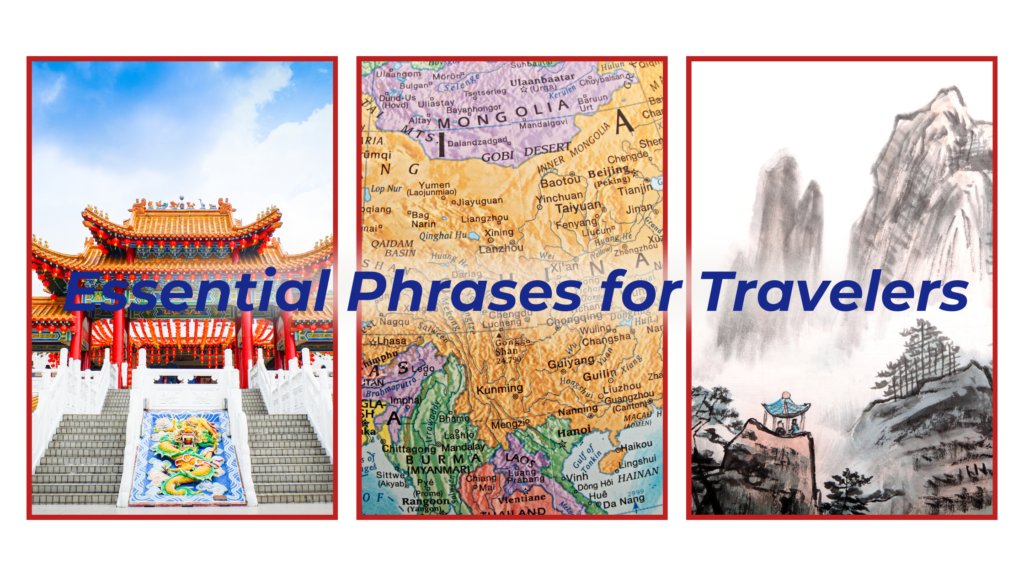
As you embark on your journey to explore the wonders of China, mastering a few key Mandarin phrases can make all the difference in enhancing your travel experience. While English is increasingly spoken in urban areas, having a basic grasp of Mandarin will not only help you navigate daily interactions but also demonstrate your respect for Chinese culture. In this blog post, we’ll equip you with a handy list of essential Mandarin phrases and offer cultural tips to ensure smooth sailing on your adventure through the Middle Kingdom.
Greetings and Basic Courtesy:
1. 你好 (nǐ hǎo) – Hello
2. 谢谢 (xiè xiè) – Thank you
3. 对不起 (duì bù qǐ) – I’m sorry
4. 没关系 (méi guān xi) – It’s okay / No problem
5. 请问 (qǐng wèn) – Excuse me / May I ask
Navigating Transportation:
6. 请问,怎么去…?(qǐng wèn, zěn me qù…?) – Excuse me, how do I get to…?
7. 我要去… (wǒ yào qù…) – I want to go to…
8. 这是去…的车吗?(zhè shì qù…de chē ma?) – Is this the bus/train to…?
9. 多少钱?(duō shǎo qián?) – How much is it?
10. 我要下车 (wǒ yào xià chē) – I want to get off
Dining and Food:
11. 我想要… (wǒ xiǎng yào…) – I would like…
12. 有英文菜单吗?(yǒu yīng wén cài dān ma?) – Do you have an English menu?
13. 我不吃辣 (wǒ bù chī là) – I don’t eat spicy food
14. 我对…过敏 (wǒ duì… guò mǐn) – I’m allergic to…
15. 买单 (mǎi dān) – Bill, please
Emergencies:
16. 我迷路了 (wǒ mí lù le) – I’m lost
17. 我需要帮助 (wǒ xū yào bāng zhù) – I need help
18. 我丢了我的包 (wǒ diū le wǒ de bāo) – I’ve lost my bag
19. 医院在哪里?(yī yuàn zài nǎ lǐ?) – Where is the hospital?
20. 我需要警察 (wǒ xū yào jǐng chá) – I need the police
Cultural Tips for Traveling in China:
- When greeting someone, a slight bow or nod of the head is appreciated, especially when meeting elders.
- Use two hands to offer or receive items, such as business cards or gifts, as a sign of respect.
- Avoid pointing with your index finger, as it can be considered rude. Instead, gesture with an open hand or use your entire hand to indicate direction.
- When dining, it’s customary to wait for the host or the eldest person to start eating before you begin.
- Learn to use chopsticks, as many restaurants may not provide Western utensils.
Armed with these essential Mandarin phrases and cultural tips, you’re ready to embark on an unforgettable journey through China with confidence and respect. Embrace the opportunity to immerse yourself in the rich tapestry of Chinese culture, connect with locals, and create lifelong memories as you explore the wonders of this captivating country. Bon voyage (一路平安 – yī lù píng ān) and enjoy your travels!
